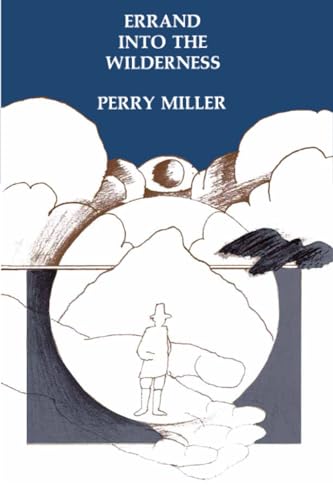

Second, the “triumph” of the Puritans in New England, following the victory of Oliver Cromwell had not, as hoped, “completed” the Reformation but had led to a policy of “Tolerance” in which “so long as a man made a good soldier in the New Model Army, it did not matter whether he was a Calvinist, an Antinomian, an Arminian, an Anabaptist or even-horror of horrors-a Socinian!” (13). First, there was in “irreconcilable split” within New England between Independent (Congregationalist) and Presbyterian visions (13). By the 1650s and 60s, the Puritan’s “errand” had met two barriers. The first generation was in no way “American” nor did they see themselves as such. Miller suggests that the initial errand had been essentially English and European, and done to “prove” the Reformation cause on uncorrupted soil. Which type of “errand” defined the Puritan mission in New England? The second type of errand is more self-conscious: “the actual business on which the actor goes, the purpose itself, the conscious intention in his mind” (3). The first is done in service to a superior power “the errand boy” who follows the directions of his senior. But he intends, as Danforth did, to stress the “errand” aspect of the Puritan endeavor.

The “wilderness” is part of what sets New England apart from England, and a “basic conditioning factor” of New England “was the frontier” (1).
Errand into the wilderness meaning series#
In this integrated series of brilliant and witty essays which he describes as “pieces,” Perry Miller invites and stimulates in the reader a new conception of his own inheritance.Miller begins by clarifying the terms of his title, which is taken from Samuel Danforth’s 1670 sermon A Brief Recognition of New England’s Errand into the Wilderness. In this book, as in all his work, the author of The New England Mind: The Seventeenth Century The New England Mind: From Colony to Province and The Transcendentalists, emphasizes the need for understanding the human sources from which the American mainstream has risen. Thus left alone with America, who were they? And what were they to do? For the second generation in America discovered that their heroic parents had, in fact, been sent on a fool’s errand, the bitterest kind of all that the dream of a model society to be built in purity by the elect in the new continent was now a dream that meant nothing more to Europe.

Miller’s engrossing account of what happened to the European mind when, in spite of itself, it began to become something other than European. This crucial uncertainty of the age is the starting point of Mr. But the original speaker’s underlying concern was with the fateful ambiguity in the word errand. Like so many jeremiads of its time, this sermon appeared to be addressed to the sinful and unregenerate whom God was about to destroy. The title, Errand into the Wilderness, is taken from the title of a Massachusetts election sermon of 1670. Miller makes this abundantly clear and real, and in doing so allows the reader to conclude that, whatever else America might have become, it could never have developed into a society that took itself for granted. Disguised from twentieth-century readers first by the New Testament language and thought of the Puritans and later by the complacent transcendentalist belief in the oversoul, the related problems of purpose and reason-for-being have been central to the American experience from the very beginning. They go to the roots of seventeenth-century thought and of the ever-widening and quickening flow of events since then. These questions are by no means frivolous. Miller’s lifelong purpose to answer: What was the underlying aim of the first colonists in coming to America? In what light did they see themselves? As men and women undertaking a mission that was its own cause and justification? Or did they consider themselves errand boys for a higher power which might, as is frequently the habit of authority, change its mind about the importance of their job before they had completed it? The title of this book by Perry Miller, who is world-famous as an interpreter of the American past, comes close to posing the question it has been Mr.


 0 kommentar(er)
0 kommentar(er)
